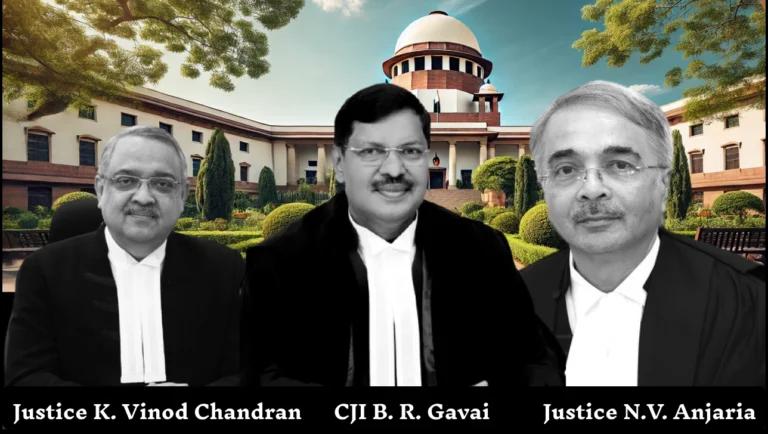The Supreme Court has referred to a 5 Judge Constitution Bench the important legal question of whether a judicial officer, who has already completed seven years of practice as an advocate, can be appointed as a District Judge under the quota meant for members of the Bar.
The Bench, comprising Chief Justice of India B.R. Gavai, Justice K. Vinod Chandran, and Justice N.V. Anjaria, will also decide whether eligibility must be assessed at the time of applying, at the time of appointment, or both.
Read also:- Supreme Court Upholds Acquittal in Madhya Pradesh Murder Case Due to Doubts Over Evidence
The case arises from an appeal against a Kerala High Court judgment that invalidated the appointment of Rejanish K.V. as a District Judge. The High Court held that on the date the appointment order was issued, Rejanish was serving as a Munsiff and was not a practising advocate, thereby failing to meet Article 233(2) of the Constitution, which states:
"A person not already in the service of the Union or the State may be appointed as District Judge if he has been an advocate or pleader for not less than seven years."
Read also:- Madras High Court Acquits Man in Outraging Modesty Case Due to Lack of Evidence
Rejanish had over seven years of legal practice when he applied. However, during the recruitment process, he was selected as Munsiff-Magistrate in December 2017. After receiving the District Judge appointment order in August 2019, he resigned from judicial service and took charge in Thiruvananthapuram. Another candidate challenged his appointment, citing the Supreme Court’s ruling in Dheeraj Mor v. High Court of Delhi, which requires an advocate to remain in active practice until the date of appointment.
The Kerala High Court acknowledged that similar appointments nationwide could be affected, given differences in State rules. Recognising the national importance, the Supreme Court has now sent the matter to the Constitution Bench for a final interpretation.
The hearing is expected soon.















